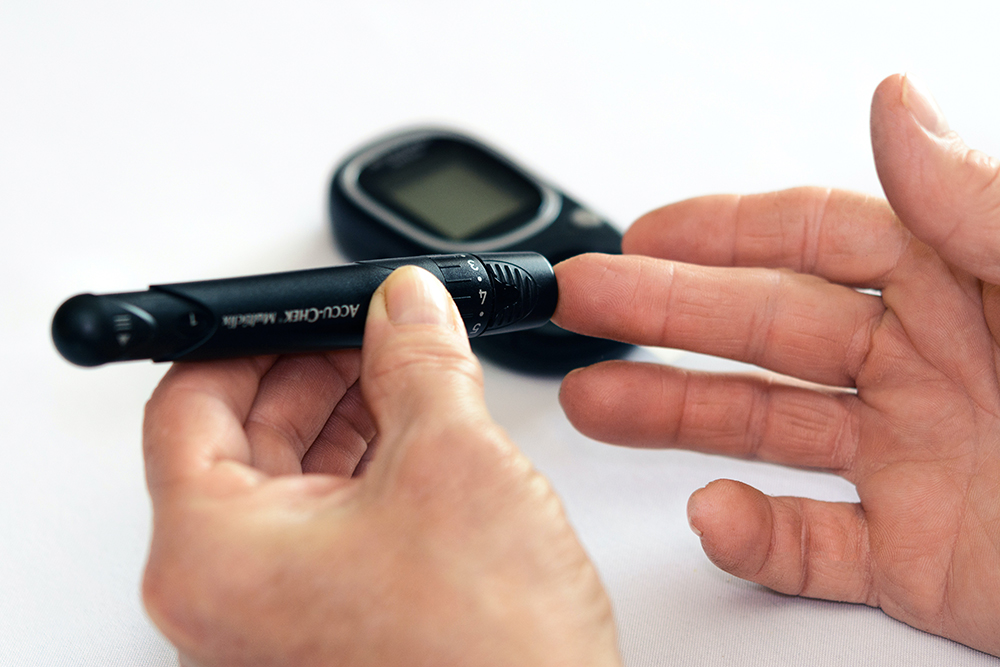When a person has Type 1 diabetes, it means that their body is unable to produce insulin. The reason that this is a problem is because the insulin takes the sugar from the food you eat and turns it into energy for your body. If you were diagnosed with diabetes, then it’s completely normal if you feel scared, especially if you aren’t well-informed on the condition. The good news, however, is that you can still live a happy and healthy life with diabetes, but it’s important that you know how to manage it.
How to Manage Type 1 Diabetes
Take Insulin Shots
Almost everyone with Type 1 diabetes needs insulin shots to help them manage their sugar level. This is usually the most intimidating part of managing your condition, but your doctor will work with you so that you understand exactly what you need to do. There are different types of shots and times of day that you can take the insulin, depending on your body’s needs.
Diet
In order to maintain proper blood sugar control, your diet is super important. Not only is a healthy diet important, but meal timing is also crucial. This is because meals must match insulin doses. For example, those who use long-acting insulin (meaning it will lower blood sugar for over 24 hours), have to be cautious of skipping a meal or eating late. The reason being is that they’re not receiving enough glucose from carbohydrates for their insulin to act upon, putting them at risk of low blood sugar. This is why patients must always consider their meal timing and glycemic load. Since every person is different, our team at DFW Family Clinic will give you more in-debt details about the best diet for managing your diabetes.
Exercise
Staying active is an important part of managing diabetes, as it helps you control the condition and prevent long-term complications. The reason why is that exercise helps you control your insulin sensitivity. After you exercise, your body doesn’t need as much insulin to process carbohydrates. In general, it’s recommended that you have a good balance of 3 main kinds of exercise: aerobic, strength training, and flexibility. That being said, it’s important that you set realistic goals and create an exercise plan that works best for you and your body. Your doctor will work with you to create a great exercise routine in order to live a healthier life.
Lab Work
There’s no better way to know if your treatment plan is working than by doing lab work. Every 3 months, your doctor will perform a blood sugar test, urine test, hemoglobin A1C measurement, and blood pressure monitoring. If they notice any irregularities, they will reevaluate and improve your treatment plan.
Teamwork
Managing a condition such as Type 1 diabetes can be intimidating, but you don’t have to do it alone. Instead of wondering every day if you’re on the right path, surround yourself with a great support system. This not only means your friends and families, but with a team of experts that can support you in living a healthier life.
The Centers for Disease Control and Prevention explains the importance of having a professional assist you:
Meeting with a diabetes educator is a great way to get support and guidance, including how to:
- Develop and stick to a healthy eating and activity plan
- Test your blood sugar and keep a record of the results
- Recognize the signs of high or low blood sugar and what to do about it
- Give yourself insulin by syringe, pen, or pump
- Monitor your feet, skin, and eyes to catch problems early
- Buy diabetes supplies and store them properly
- Manage stress and deal with daily diabetes care.
By understanding how to manage Type 1 Diabetes, you can feel more confident and take control of your health. At DFW Family Clinic, we want to help you handle short-term symptoms, while also successfully controlling your condition long-term. To learn more about diabetes management and supplies, schedule an appointment today.







